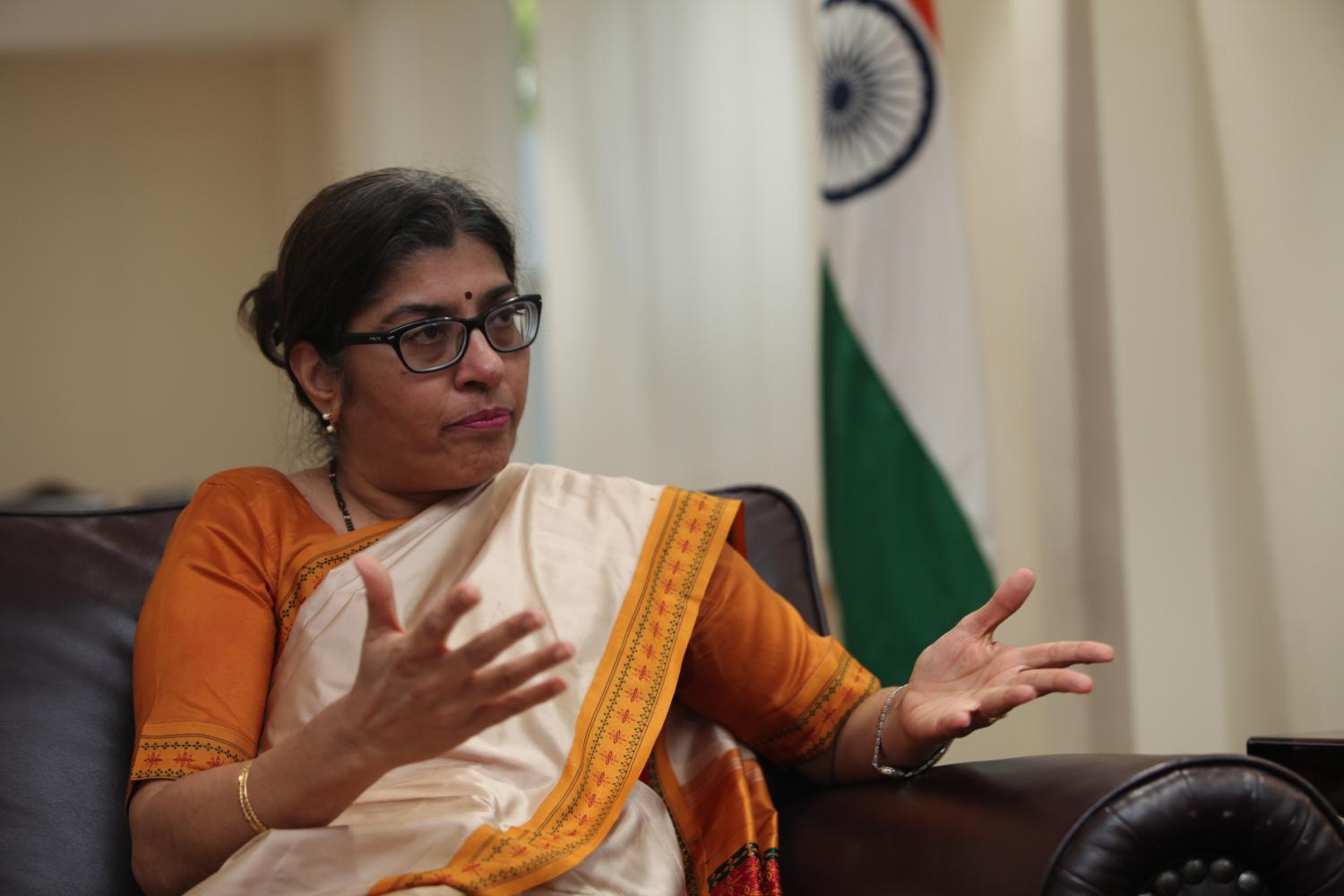
The Indian diaspora in Thailand on Sunday marks the 71st year since their motherland became a republic and the day its constitution went into effect. Ahead of India's Republic Day, Indian Ambassador to Thailand Suchitra Durai talks to the Bangkok Post about relations between the countries as well as regional ties.
"It is a very special day for all Indians whether they are living in India or abroad. It is a day when everyone comes together to celebrate. We hoist the Indian flag, sing patriotic songs and join a cultural programme to relive our long, historic struggle for independence. With the leadership of Mahatma Gandhi, we reached independence in a non-violent way," the ambassador said, adding the embassy expects hundreds of people to show up for the Republic Day celebrations.
As for bilateral ties, she said that though India decided to pull out of the Regional Comprehensive Economic Partnership (Rcep) last year, India's partnership with Thailand remains strong.
"We held the 8th Joint Commission Meeting in October last year in New Delhi to review our bilateral relations. We have a strong multifaceted bilateral engagement at all levels. Her Royal Highness Princess Maha Chakri Sirindhorn has been a great friend of India. She completed her 19th visit in November 2018. We look forward to more visits in the near future," the envoy said.
Thailand's Asean chairmanship came to an end last month. Ms Durai said India's engagement with Asean will remain a critical element of the Act East policy.
"When Indian Prime Minister Narendra Modi came here [at the East-Asia Summit on Nov 4 last year], he announced the Indo-Pacific Ocean initiative [which includes a proposal on maritime security pillar]. We have a lot of complementary [policies], such as the Asean Outlook on the Indo-Pacific and India's own vision," she said.
Ms Durai reiterated India's commitment to a free and open Indo-Pacific region and underlined its maritime partnership with Thailand.
"People forget that because of the land between our countries. However, we are very close neighbours because we share a maritime boundary in the Andaman Sea. We are members of the Indian Ocean Rim Association [IORA]. We have meetings and participate in the Indian Ocean Naval Symposium [IONS] and other Asean-led institutions such as the Asean Regional Forum [ARF] and the Asean Defence Ministers' Meeting Plus [ADMM-Plus] to ensure peace and stability in the region," she said.
Despite the US-China trade war and its resulting economic slowdown, Ms Durai said India's trading ties with Thailand remain robust.
"It has been a difficult situation for all countries. Last year saw a decrease in global trade because the two major economies had a difficult period. But there has been a deal. I am sure things will improve. As far as our bilateral trade is concerned, I am happy to note that we are not really impacted. There was a slight drop compared to 2018. But it was not to the extent that it might have affected our trade relationship," she said.
Despite huge potential in food products, chemicals, automotive and engineering goods, Ms Durai said India and Thailand are working towards removing trade and non-tariff barriers, including acceptable sanitation and certification.
Moreover, India can work with Thailand under the Early Harvest Scheme, which will involve the identification of products for tariff liberalisation pending conclusion of a Free Trade Agreement (FTA) negotiation, she said, adding that it will also work with Asean under the FTA even though it has pulled out of Rcep.
"Our premier emphasised the current structure of the Rcep did not reflect its guiding principles or address outstanding issues and concerns of India. In light of that, we were not able to join the Rcep. Our decision was guided by the impact it would have had on the livelihood of all Indians, particularly the vulnerable sectors in our society," she said.
With India and Thailand's geographical and cultural proximity, Ms Durai said it forms the basis of interaction and helps strengthen people-to-people contact.
"It is easy for Thai people to understand and participate in our cultural activities. For example, people say Songkran is based on Holi, the festival of colours. The Ganesha festival is also very popular. We are holding the second Northeast India Festival next month at CentralWorld," she said.
Last year, India also marked the 550th birth anniversary of the founder of the Sikh religion in Thailand.
Since India is home to Buddhism, Ms Durai said many Thais go to pilgrimage sites in eastern and northern India, such as Bodh Gaya (where Buddha attained enlightenment), Sarnath (where Buddha delivered his first sermon) and Kushinagar (where Buddha passed away).
However, she said, she wanted to introduce new destinations to Thai tourists.
"We have other attractions such as the Taj Mahal in Agra and the beautiful state of Rajasthan. We have the Himalayas in the north and the ski slope in Jammu and Kashmir. We have excellent places for adventure tourism. I encourage Thai people to go to the northeast of India because it is still virgin territory," she said.
Last year, 160,000 Thais visited India, while 2 million Indians came to Thailand, with many heading to Pattaya, Hua Hin and Chiang Mai.